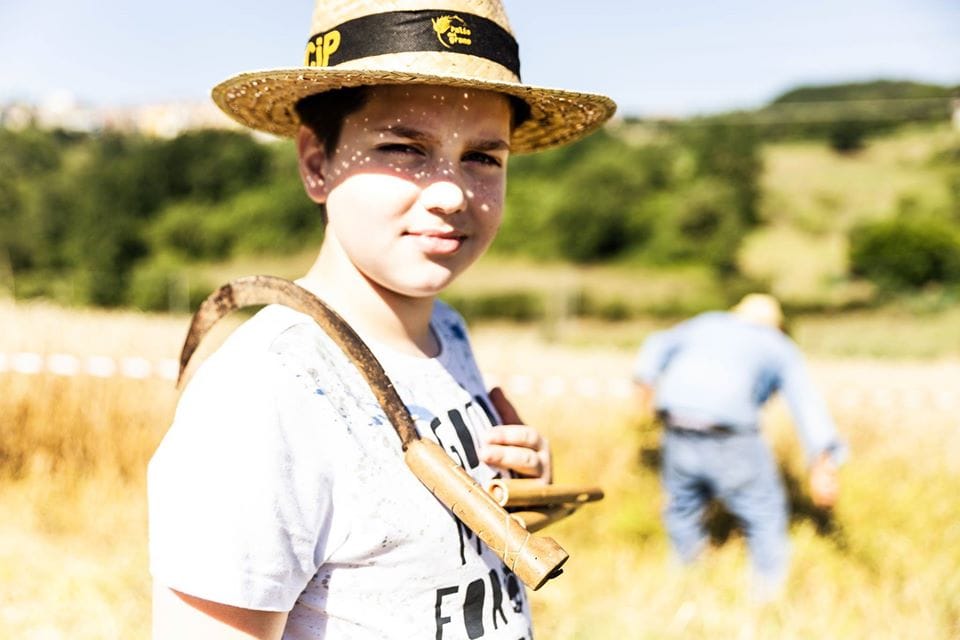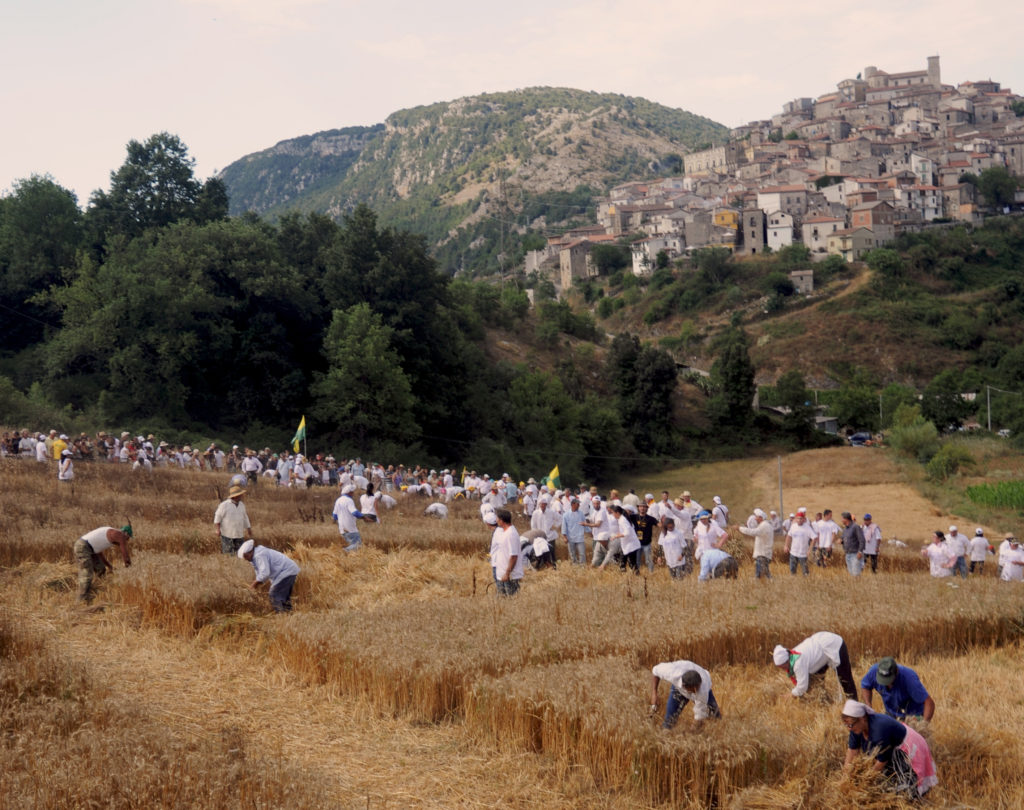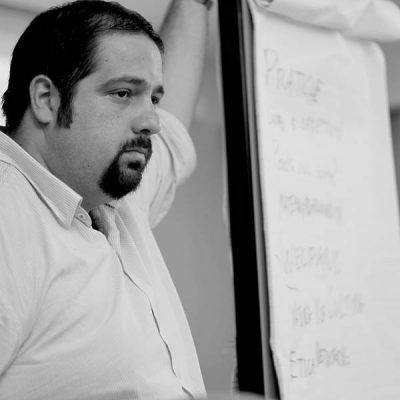The unfinished Chthulucene must collect up the trash of the Anthropocene, the exterminism of the Capitalocene, and chipping and shredding and layering like a mad gardener, make a much hotter compost pile for still possible pasts, presents, and futures. -Donna Haraway
We are in trouble! As our lives are turned upside down by an unfamiliar virus that is rapidly spreading to all corners of the world, the words of the philosopher Donna Haraway come to mind. She invites us to think of ourselves as linked to an infinite number of creatures and reminds us that “becoming with” means that ontologically heterogeneous entities become what they are only through their own relational process. There is no single pre-existence before nature, culture and subjects are interwoven, but there is an endless coming together.
Is there a way to avoid succumbing to this damaged world? According to the philosopher, interacting is the solution. Being alone means succumbing to despair or faint hope. Sympoiesis, in contrast, is common sense, and practicing it makes us ontologically creative.
In line with these basic principles, our Societing 4.0 research-action group — with the RuralHack task force dedicated to food-system innovation issues – has already been working for several years with rural communities. We have helped build bridges between researchers, scientists and the old masters of the land, improving relationships between hackers, artists and farmers in inland, rural areas and metropolitan centers.
The hypothesis we are experimenting with and analyzing is a Mediterranean way of development, which considers coupling technological and social innovation as part of one process. In our Mediterranean model concept, technology is not necessarily the cause of alienation and distancing from tradition, rurality, or craftsmanship. We see it as central in bringing together young people, craftsmen, small businesses, social entrepreneurs, start-ups, research 4.0, and institutions, united around a different sense of production, work, the environment and society — thus, becoming the key to sustainable development, and to protecting biodiversity, the environment and people.

New systems in the food supply chain are key
This model is based on open systems: open software, open data and participatory research methods that favor — in our opinion — more sustainable and redistributive socio-economic processes. The idea is that both individuals and communities can develop new forms of value together.
These systems operate directly on the food supply chain by changing its underlying logic, starting with the idea that commodity food should go back to being commons — that is to say, for the common good. This is a key step that is not reached by new labeling or new forms of produce certification, but via shared feelings of belonging, and it is one that can be confirmed via daily consumer choices; Consumers who become free, informed citizens, independent in their decisions, ceasing to be acted upon. Our Mediterranean diet, originating and established in precisely the geographical areas where we operate (Southern Italy including Campania, Naples and Cilento) and its history teach us that this awareness belongs to the culture of people, to our social ties, to our caring attitude toward our surrounding territory and natural resources.

Conversely, the food system interconnection with the wider problems facing the world — climate change, waste, food security, water and soil quality, loss of biodiversity, hunger on one side of the world and obesity on the other — is now ever-increasingly clear. These issues are all related to food, its production, its transformation and its distribution.
Scientific solutions or public policies respectively attempting to address these issues often do not fully consider the true complexity. Furthermore, the very processes of knowledge that guide change, transformations and innovation are too often conceived, prototyped and developed far from the actual contexts in which they are addressed. A clear example is the application of 4.0 technologies to SMEs (small-to-medium enterprises), or other traction sectors such as agriculture.
Yet, to those who work within this complexity, it is evident: In order to generate systemic changes in our food system — to make it sustainable, resilient, inclusive, responsible, diversified and competitive — dialogue between multiple players in public, private and civil society must be integrated into every phase of research. In other words, forms of participatory innovation are crucial to connect citizens with scientists, academics and politicians. In this way, practical knowledge-sharing exercises can develop, and in turn lead to viable solutions. In summary, we need a multi-player and multidisciplinary approach to research, which emphasizes co-planning and co-sharing to realize radical innovations. This then demands the strengthening of interested parties’ capabilities in order to create trust-building communities of practices which connect with civil society, scientists and policy makers.
It is also critical to highlight that advances which erase the past and keep no memory of the identity of the territory or its contexts, cannot be considered a winning strategy, in contrast to solutions that merge with tradition. Deep down, each tradition is itself the result of an innovation. Each innovation emerges from a community and is considered important for the community’s survival. It is then decided it should be handed down to future generations. From an evolutionary perspective, tradition and innovation represent a hand over.

Open innovation in agriculture
Top-down approaches tend to dominate agricultural research and rarely include relevant stakeholders, such as farmers, who are often left out of early stages. Subsequently, knowledge-creation trajectories involving innovation design still occur mainly behind closed doors in research institutes. The narratives of these projects are rarely open to full-hearted discussions with all concerned. Inclusion can even be regarded as problematic by innovators aware that audience engagement potentially increases time to market and the issuing of sensitive information.
Research itself has also demonstrated that open innovation and responsible innovation are complementary. Ruralhack has used a range of tools and methods to experiment with innovation in agriculture 4.0. Tools capable of mapping problems and solutions in different ways, including digital comparative studies and meta-analysis methods. These tools are able to help produce new forms of social intelligence and ways of exchanging knowledge. They provide opportunities and devices to connect community intelligences (human, artificial and collective intelligences) via farmer networking events, farmer clusters, demonstration farms, popular festivals, demonstration tests and consultations. This multitude of informal spaces allows farmers and citizens to interact with the agriculture system including veterinarians, consultants, seed traders and livestock markets.
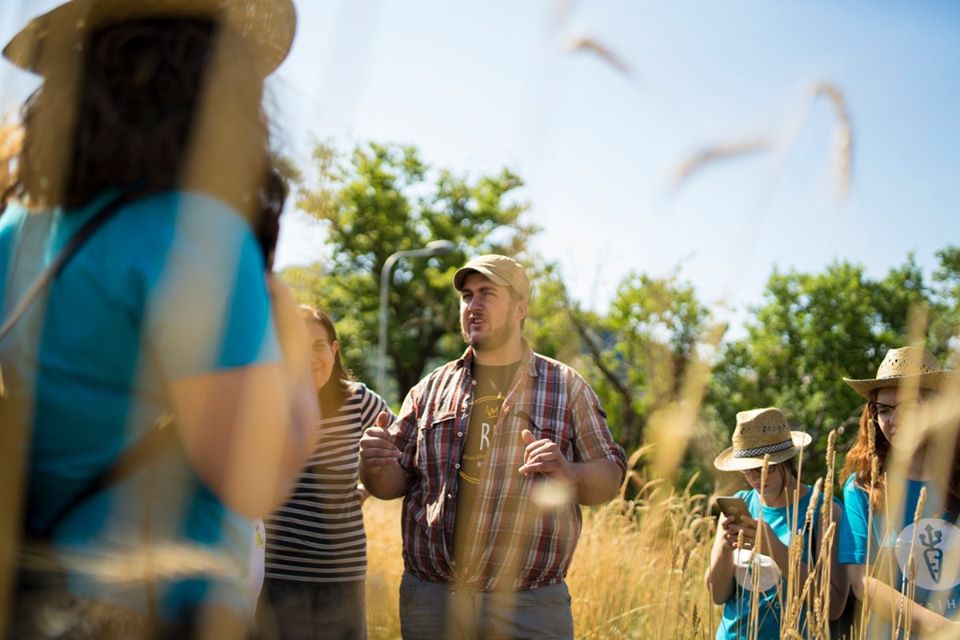
Societing 4.0 first mapped the research processes already underway in our departments in order to facilitate the meeting between companies in our area (including agricultural ones) and knowledge-production systems within the University. Key topics related to specific university departments were defined to classify ongoing research activities. The word “tomato,” for example, corresponds to a list of all those who work on tomatoes within the university as a whole: from the Business Studies department dealing with export management, to Materials Sciences involved in deriving bioplastics from tomato skins.
We chose open source and start-up solutions to connect university-based players such as TIM Working Capital located within the university and already supporting start-ups; partners such as Cisco; university spin-offs; the Digital Crafts Center currently carrying out research.
At the same time, through a range of training and co-design actions, we were able to gather the views of over 5,000 young farmers in the last few years. Young people appreciate open source solutions as these reduce levels of dependency on technology and their producers. This enabled us to develop an improved technological innovation aptitude, conceptualized above all as a resource to activate processes and product transformation. Thus, leading to increased profit and more sustainable environmental impact based on the circular economy approach.
The meeting with SMEs operating within the Campania region, run by entrepreneurs who are less aware of the rationale behind 4.0 innovations was, however, very different in nature. We chose a storytelling approach, listening to their experiences, gathering their stories via video interviews. The strong links between their company history and the personal choices made by the entrepreneurs themselves clearly emerged. These meetings were invaluable because they ensured our working group was able to better understand and investigate more thoroughly the problems being faced. We used an open-ended-question-based technique. It also became an opportunity to outline technological innovation project proposals directly. This pull system had several benefits: Many beautiful life and business stories were gathered; ideas and possible solutions were discussed; and we were afforded the opportunity to teach initial 4.0 literacy on big data, IoT, artificial intelligence topics with a new audience.
#Campdigrano 4.0: Bringing homo faber and homo sapiens together
The most exemplary experience, in this regard, was realized in July 2019 on the occasion of the Palio del Grano which is held every year in Caselle in Pittari, a small village in the heart of the Cilento, a rural Southern Italian area in the province of Salerno. A group of young people, with just a handful of ancient seeds, created a network of companies a few years ago. These local businesses cooperate with the community to produce and improve seeds that have not undergone laboratory hybridization, but are subjected to genetic improvement processes through seed mixtures.
The young people from Caselle In Pittari are full-fledged heroes and like brothers to me. Together with our Incartata headquarters manager Michele Sica — and in reality with many others as well, with whom these bridges of transition with the RuralHub and RuralHack projects were thought up — and our Caselle “cumpari” (or mates/friends) community we shared a series of practices to support what is known as the neo-rural movement in Italy.
This was a week of collaboration, a week in which farmers, growers, young people from nearby towns and schools, worked with researchers from University of Naples Federico II, independent researchers from Officine Innesto’ mentors involved in studying digital transformation for SMEs, experts in the agrifood system (from seed genetics to organic market experts), and engineers expert in the field of Arduino systems designed for agriculture.
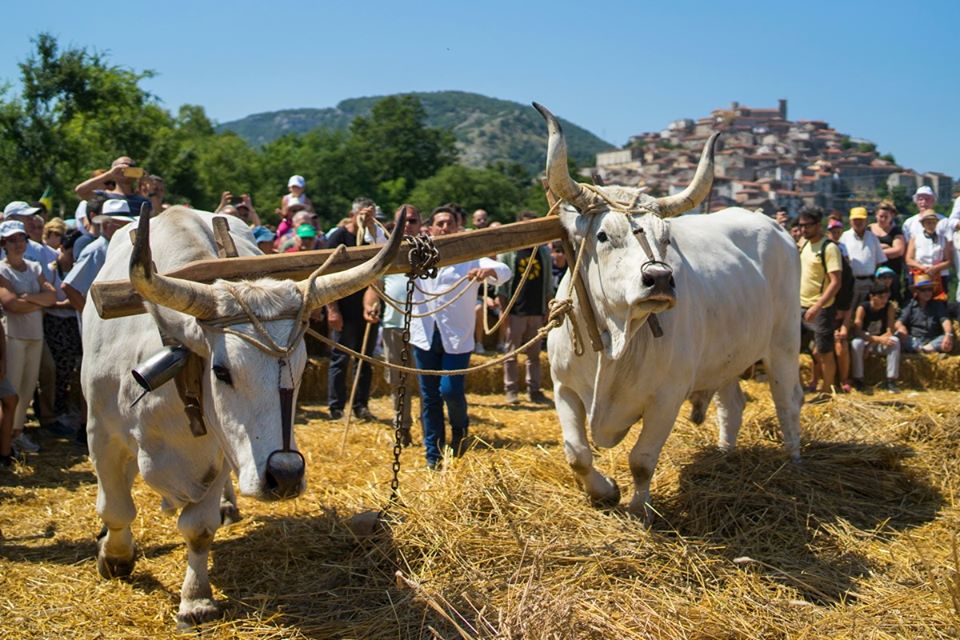
The week was set up as a PIDMed project mentoring activity carried out with the Salerno Chamber of Commerce with the aim of:
- Carrying out participatory research, collecting information on the requirements of small agricultural businesses in the area;
- Designing 4.0 precision agriculture solutions that meet the needs of small quality agriculture, bringing together the full extent of open source hardware skills with the knowledge of the old masters of the earth;
- Experimenting and observing the application of support methodologies for collective intelligence processes in developing territories.
These activities proved to be a highly distinctive identity experience.
Our Societing 4.0 method is based on encouraging meetings, comparisons and enabling new points of view to emerge, moving beyond polarizations to create networks and bridges between differing and often distant disciplines or positions. The methodological underpinnings, in the sense of the Mediterranean model, are based on the chance to welcome and create a dialogue between these diverse points of view, dealing with any arising conflicts through mediation in the style of ancient Greek tragedy. Societing 4.0 research-action is based on transdisciplinary knowledge and on combining traditional social research together with design thinking processes, helpful in promoting meeting, exchange and mediation processes (from Societing 4.0 Manifesto).

The experiment allowed distant communities such as small-town elderly farmers in southern Italy to come together with Turin-based engineers designing international open source technologies. Despite language-related issues or terminology barriers, the common root between these two communities was well-proved. This common root concerns the style of their practices bringing together fabers and sapiens. The focus is on being makers with a hacker attitude, being experimental, wanting to compare and share, wanting to find “solutions by bringing hands and heads together.” The RuralHack team made up of university trainees, professors and mentors for the digital transformation of businesses played the roles of facilitator and mediator.
Some enabling conditions
If conventional agriculture is becoming unsustainable, technologies can play an important role in the ecological processes of transformation. It is paramount, in our opinion, that these technologies are rethought and reshaped with people and other forms of life in mind. Based on the research-action conducted over recent years, we note the presence of enabling conditions that render technologies (including 4.0) beneficial for social innovation processes leading to positive impacts on the environment and the economy.
Firstly, the socio-economic paradigm needs to change in order for us to revalue people, soil, healthy foods and local communities: To quote José Bové and Gilles Luneau, “Today, the struggle for freedom is based on food, the climate and biodiversity protection, it depends on our relationship with our food production [being] respectful of our living space. Respectful of our Earth. Multinationals who hide behind cartels need to be faced. They are giants, but we are a multitude. They believe we are isolated and scattered, however we are united and strong. We are in a strong position and can now regain our decision-making power throughout our municipalities, our regions, our workplaces and our parliaments.” Farmers, especially the youngest ones, need to get together, both internationally and locally. Cooperative associations can unite voices, forces and resources.
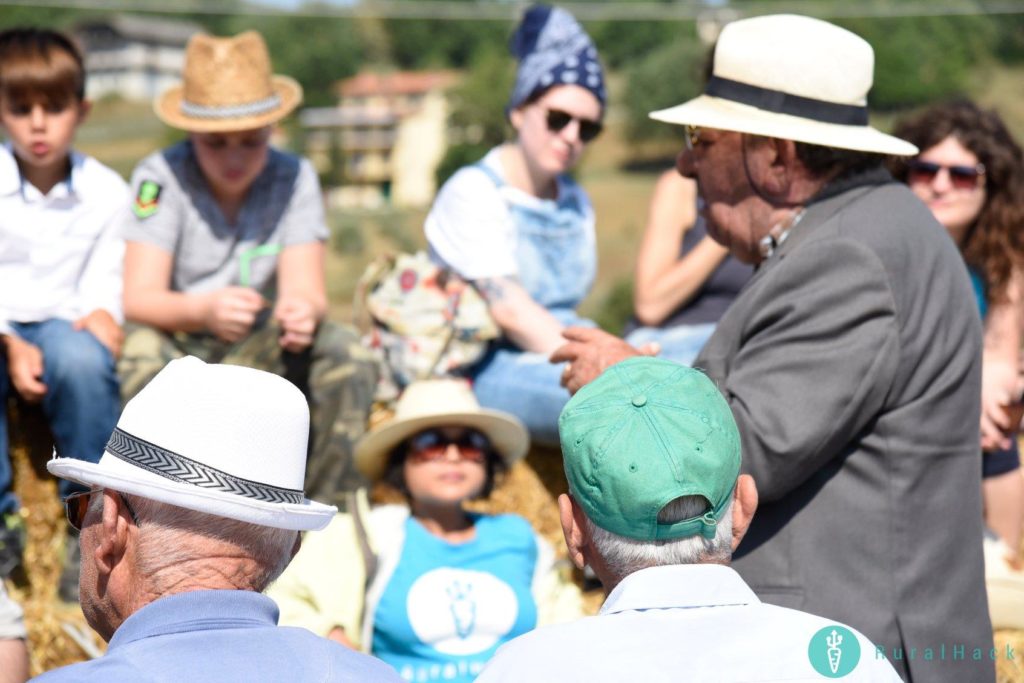
Secondly, sustainable innovation network connections need to be created. The fourth agricultural revolution is associated with many innovations in sustainable agriculture, some are only now emerging while others are more established. These will interact and evolve in the wider ecology of innovation that includes major emerging technologies (AI, Internet of Things, Cloud computing, robotics), together with smaller breakthroughs for farmers, involving simpler, low-technology or technology-free sustainable agriculture solutions. In the rush to embrace intelligent agro-technology, we must not run the risk of forgetting the wider network of other innovations already playing an important role and impacting society in different ways.
We must ensure that the concept of sustainable innovation is not linked exclusively to emerging smart technologies. In practice, what does this mean? It means mapping and linking innovation applications to other fields of sustainable innovation with specific attention to persistent social responsibility. Let’s not forget that even traditions are advances, handed down within communities to ensure their very survival. From a critical perspective with a focus on true sustainability, this means that it may be now relevant to retrieve lost innovations, long forgotten in our blinded quest for progress. These traditional advances may now resurface as fundamental. All forms of technology should be used. For example, phytosanitary wheat monitoring with drones which can now be carried out in minutes, saving days. To give a further example, stone grinding requires multiple technologies from optical selector to gravimetric table in order to ensure healthy produce. Applying technology wisely in this field today can guarantee a return to traditional stone grinding.
Thirdly, bridges between faber and sapiens should be built. Our first-hand experience confirms that creating bridges which connect tradition to innovation, that link disciplines and share knowledge among all players can benefit the design of unconventional, but more sustainable, paths and solutions. Some knowledge bases, originating directly from practices, offer solid cognitive tools and should not be considered folkloric or superstitious. This knowledge is scientific knowledge which has been tried and tested. Collective action, carried out through developing networks, can activate a collective intelligence that co-generates new ideas, different solutions and widespread opportunities.
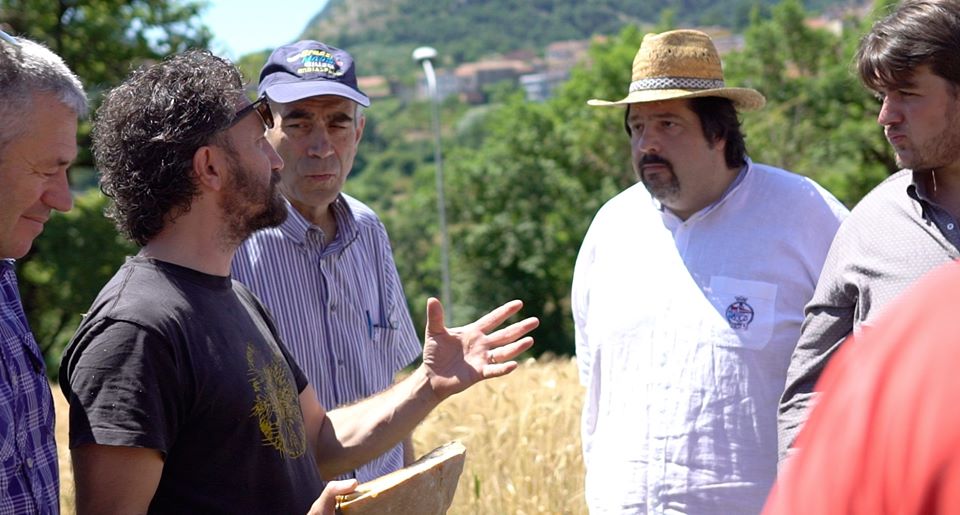
Fourthly, and finally, we turn to the alliances between institutional and non-institutional players performing a supportive role — for example, by providing training or coordinating co-planning moments. They play a hinge role in taking into account territorial interests — for example, between agricultural producers and state-run canteens — as well as a facilitating role in sharing opportunities, ensuring points of contact between research and technological solutions. These players are also pivotal in spreading awareness about product quality and food health.
As Geof Mulgan says in his book Big Mind: “Putting these proposals into practice will verify their validity and provide lessons-learnt reflection opportunities. Nobody can prove, a priori, the impact of new laws or new ways of running the company. At most, assemble elements gathering experiments, examples or analogies that change to create a new way of managing things.”
Our research-action aims, therefore, to focus on multiple ways of looking at local territories to promote their development. We argue that a two-fold approach is needed — one that embraces both the concepts of respecting and refocusing on these territories to ensure their development and is based on their worth rather than contempt.
We live in increasingly complex times, and undoubtedly there is no way of experiencing complexity other than embracing complexity. We need to leave behind banal trivializations or polarizations in our attempt to understand our planet as a whole, combined with the cultures and societies that have developed upon it. A new era is opening and we all have the responsibility of thinking about a symbiotic and non-extractive way of living in harmony with planet Earth. The Spirit of the Time keeps telling us: There is no time to waste.
